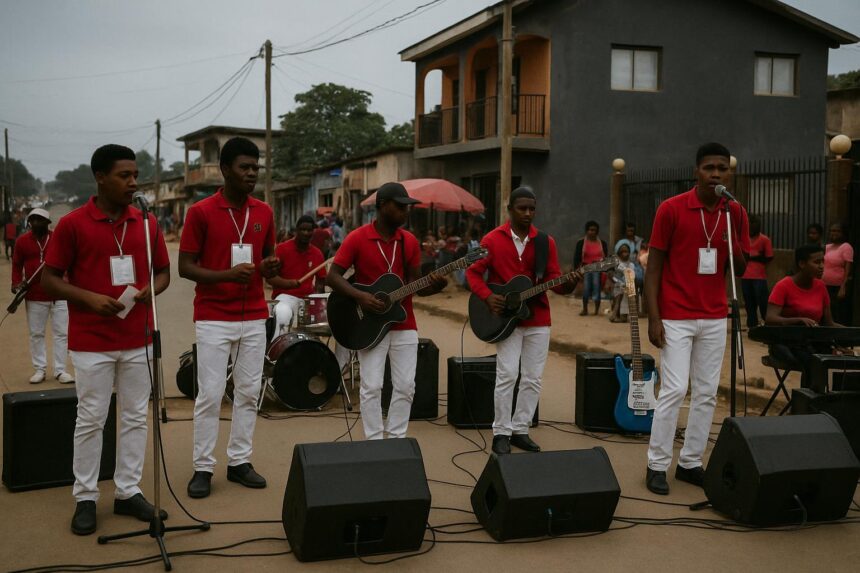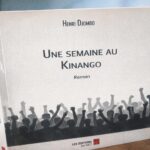FIMA 12 ends on soaring note
Three nights of sparkle ended on 14 September as the twelfth International Festival of Music and Arts, known locally as FIMA, lowered its lights in Pointe-Noire after a rush of sound, colour and smiles that carried through every street around the venue.
Attendance remained strong from the opening drum roll to the final encore, with organisers estimating several thousand visitors per night, a figure echoed by security teams who noted smooth crowd flow and no major incidents, a point of pride for local authorities.
The atmosphere stayed relaxed, families mixing with avid concert-goers, sapeurs, students and tourists, all drawn by a programme designed to be as inclusive as a city beach at sunset.
Word-of-mouth crowds and smooth logistics
Over twelve editions the festival has earned a word-of-mouth pedigree; many visitors said they first heard about FIMA from friends who attended previous years and were “still talking about it twelve months later”. That loyalty translated into swift ticket sales within hours of release.
FIMA’s recipe was simple yet effective: place energy at the centre and let Pointe-Noire’s public provide the rest.
From early evening, waves of applause rolled across the esplanade outside the venue, vendors juggling skewers of spicy brochettes while children darted between photo backdrops installed for social media selfies.
Inside, festival sound engineers leaned on crystal-clear mixes that restored the event’s reputation for audiophile quality, an aspect fans repeatedly praised on their live streams.
Police units and private stewards maintained discreet perimeters, their neon vests visible yet never intrusive; festivalgoers moved freely between food courts, charging stations and first-aid tents set up close to the main stands in case of heat or fatigue.
A mosaic of music, fashion and comedy
This edition refused to be boxed into a single art form.
Day three illustrated that spirit best, switching from catwalk to sketch to concert without a breath, proving that fashion rhythms, stand-up punchlines and bass lines can share the same spotlight.
The sartorial flair of Pointe-Noire’s legendary sapeurs met the fresh silhouettes of young designers, while comedian troupes kept the laughter warm between sets.
Finally, Feu des Stars erupted with its trademark cosmic-meets-street groove, turning the closing night into what one spectator called a “giant open-air living room” where strangers danced like cousins.
When the final chord faded, phones lit the night sky like fireflies, a spontaneous tribute that lasted several minutes before the MC could be heard inviting everyone to “return home peacefully and carry the music with you”.
Backstage voices and economic ripple
Backstage, promoter Médard Mbongo moved from console to corridor, thanking almost everyone in sight.
“An immense thank-you to the artists, the audience, our staff, the city and especially the local authorities,” he said, stressing that the partnership with municipal services underpinned the festival’s safety record.
City culture officer Jeannine Loufoua highlighted the economic ripple, pointing to hotels and taxis operating at near capacity during the long weekend.
Volunteers, many drawn from local arts schools, spoke of skills gained in stage management and digital promotion, experience likely to bolster future creative careers.
Street restaurateur Armand Ngoma reported doubling his usual weekend turnover, crediting the festival for “bringing customers who normally eat at the mall into the neighbourhood”. Taxi driver Grâce Makengo echoed that verdict, calling FIMA “better than the football derby for fares”.
Beyond money, several elders praised FIMA’s role in strengthening civic cohesion, noting that young volunteers learned teamwork under pressure and discovered pride in showing visitors a welcoming, orderly city.
Looking forward to an even greener FIMA 13
With the last cables coiled, attention already shifts to edition thirteen.
Mbongo hinted at expanding the daytime “campus” of workshops that introduced children to drumming and costume design, noting that early engagement cements both audience and talent.
Technical director Sylvie Makosso mentioned plans to pilot a travelling FIMA pop-up in inland districts, bringing the brand’s mix of culture and civic pride closer to rural youth.
Sponsors such as local telecom operator MTN Congo and beverage brands pledged to scale up support, impressed by the festival’s plastic-free pilot that replaced single-use cups with washable gobelets, a move welcomed by environmental groups monitoring coastal litter.
Organisers will hold a debriefing session with city officials next week to refine traffic plans, evaluate noise levels and open a public suggestion portal, reinforcing the collaborative model that has become a hallmark of Pointe-Noire’s cultural calendar.
Until then, playlists from FIMA 12 echo in taxis and cafés, proof that the festival extends beyond the stage; its songs, fashions and jokes seep into everyday talk, weaving a bright thread through the city’s shared story for weeks to come across every district.





















